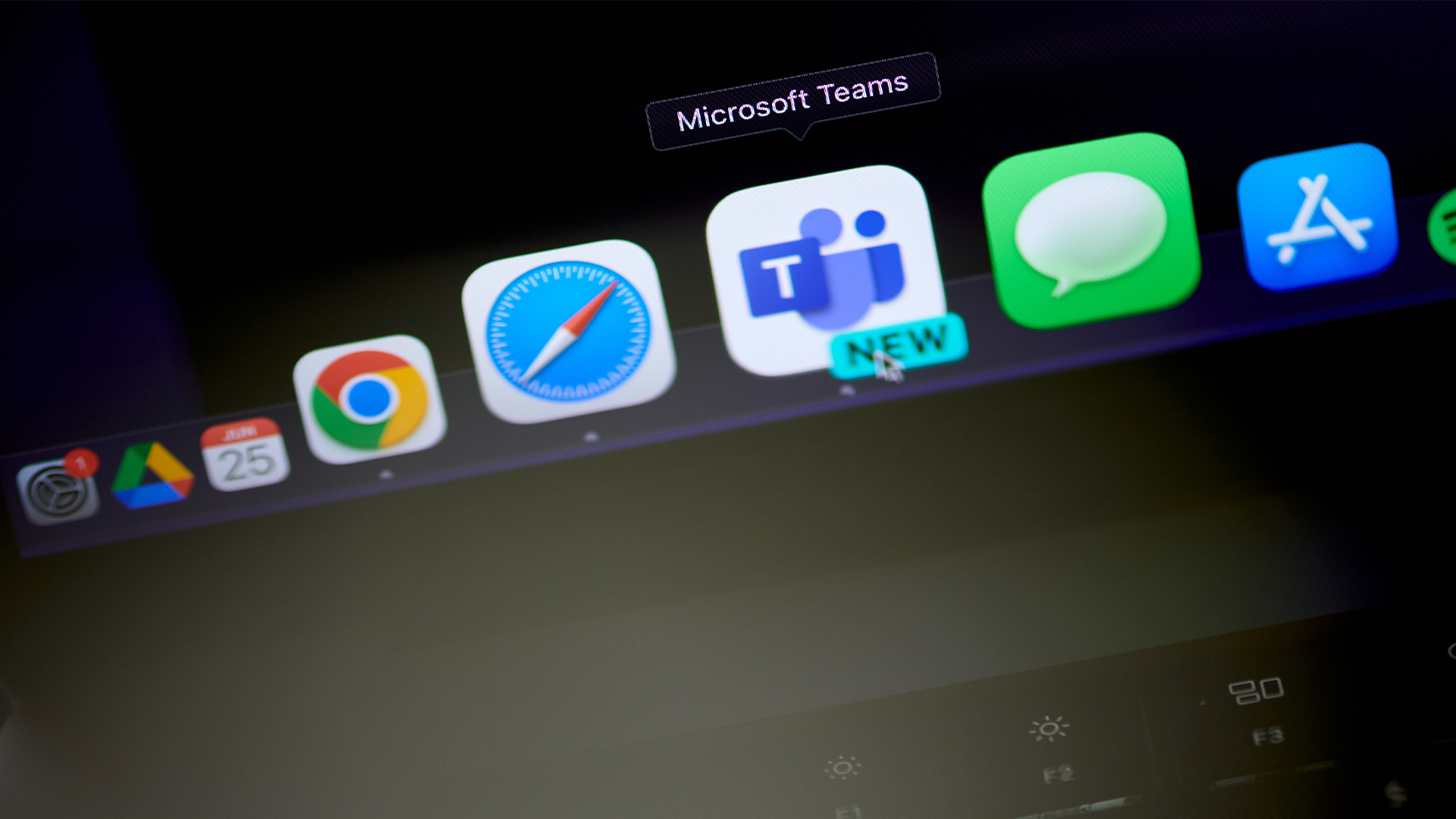LockBit macOS ransomware strain discovered, sparks concerns over shifting tactics
Researchers noted that while this disclosure should be a cause for concern, the program is currently very buggy


The first recorded instance of LockBit targeting Mac users has been revealed in what appears to be a shifting approach by the infamous ransomware gang.
Researchers at MalwareHunterTeam uncovered a ZIP archive on VirusTotal that was found to contain encryptors for devices running macOS.
MalwareHunterTeam revealed the discovery in a series of tweets at the weekend, highlighting encryptors named ‘locker_Apple_M1_64’ alongside lockers for Linux and ARM.
This particular encryptor was found to target new versions of Mac devices currently running Apple Silicon.
The VirusTotal archive examined by researchers was also found to contain encryptors for CPUs used on older Mac devices.
In a blog post dissecting the discovery, security researcher Patrick Wardle said that the novel malware marks the first instance of a ransomware group developing a payload for Apple products.
Following a period of initial scrutiny and skepticism, vx-underground, which compiles malware source code and samples, tweeted that the LockBit macOS ransomware “is real” and that the gang had confirmed development of the strain.
Get the ITPro daily newsletter
Sign up today and you will receive a free copy of our Future Focus 2025 report - the leading guidance on AI, cybersecurity and other IT challenges as per 700+ senior executives
The discovery highlights a potential shift in approach by LockBit, which has typically targeted Windows and Linux-based devices.
RELATED RESOURCE

LockBit has been among the most prolific ransomware gangs to ever exist, and was most recently responsible for the attack on Royal Mail which caused significant service disruption.
It has also been the most prolific groups in terms of number of successful attacks for years now, but was overtaken in March by Cl0p following the GoAnywhere MFT breaches.
Although researchers highlighted that the disclosure of this macOS encryptor should be a cause for concern, at present there is little to no risk of users being compromised.
“While yes it can indeed run on Apple Silicon, that is basically the extent of its impact,” Wardle wrote in his blog post. “Thus macOS users have nothing to worry about…for now.”
Wardle suggested that the strain is “far from ready for prime time”, noting that the strain is “rather buggy” and contains notable flaws that will cause it to prematurely exit when run on macOS.
“From its lack of a valid code-signing signature to its ignorance of TCC and other macOS file-system protections, as it stands it poses no threat to macOS users,” he wrote.
The macOS variant of LockBit’s ransomware payload was also dated 17 November 2022, meaning the discovery has taken some time to unearth.
LockBit confirmed to BleepingComputer that the strain is under active development.
Due to many organisations preferring Windows-based computers for their workforce rather than Macs or even Linux-based machines, ransomware groups have usually developed their payloads that could affect the widest pool of targets.
LockBit’s is not the first ransomware program to be written for macOS, but such strains are certainly less common than those that target Windows.
Regardless, Apple has been “fairly proactive” when it comes to securing its computers against ransomware, Wardle said.
Implementing measures such as system integrity protection (SIP) and read-only system volumes offer protections that mean even if a Mac was infected with a ransomware payload, it would be difficult for it to affect OS-level files as a result.
Apple has also introduced transparency, consent, and control (TCC) protections too, which means files in protected locations either require the user’s manual approval or a vulnerability exploit in order to affect, Wardle said.
The development of LockBit’s macOS ransomware strain may still be in its infancy and riddled with bugs, but the industry will be alarmed by the discovery given the group’s standing in the cyber criminal space, perhaps indicating a new trend in ransomware.

Ross Kelly is ITPro's News & Analysis Editor, responsible for leading the brand's news output and in-depth reporting on the latest stories from across the business technology landscape. Ross was previously a Staff Writer, during which time he developed a keen interest in cyber security, business leadership, and emerging technologies.
He graduated from Edinburgh Napier University in 2016 with a BA (Hons) in Journalism, and joined ITPro in 2022 after four years working in technology conference research.
For news pitches, you can contact Ross at ross.kelly@futurenet.com, or on Twitter and LinkedIn.
-
 Should AI PCs be part of your next hardware refresh?
Should AI PCs be part of your next hardware refresh?AI PCs are fast becoming a business staple and a surefire way to future-proof your business
By Bobby Hellard Published
-
 Westcon-Comstor and Vectra AI launch brace of new channel initiatives
Westcon-Comstor and Vectra AI launch brace of new channel initiativesNews Westcon-Comstor and Vectra AI have announced the launch of two new channel growth initiatives focused on the managed security service provider (MSSP) space and AWS Marketplace.
By Daniel Todd Published
-
 Hackers are targeting Ivanti VPN users again – here’s what you need to know
Hackers are targeting Ivanti VPN users again – here’s what you need to knowNews Ivanti has re-patched a security flaw in its Connect Secure VPN appliances that's been exploited by a China-linked espionage group since at least the middle of March.
By Emma Woollacott Published
-
 Broadcom issues urgent alert over three VMware zero-days
Broadcom issues urgent alert over three VMware zero-daysNews The firm says it has information to suggest all three are being exploited in the wild
By Solomon Klappholz Published
-
 Nakivo backup flaw still present on some systems months after firms’ ‘silent patch’, researchers claim
Nakivo backup flaw still present on some systems months after firms’ ‘silent patch’, researchers claimNews Over 200 vulnerable Nakivo backup instances have been identified months after the firm silently patched a security flaw.
By Solomon Klappholz Published
-
 Everything you need to know about the Microsoft Power Pages vulnerability
Everything you need to know about the Microsoft Power Pages vulnerabilityNews A severe Microsoft Power Pages vulnerability has been fixed after cyber criminals were found to have been exploiting unpatched systems in the wild.
By Solomon Klappholz Published
-
 Vulnerability management complexity is leaving enterprises at serious risk
Vulnerability management complexity is leaving enterprises at serious riskNews Fragmented data and siloed processes mean remediation is taking too long
By Emma Woollacott Published
-
 A critical Ivanti flaw is being exploited in the wild – here’s what you need to know
A critical Ivanti flaw is being exploited in the wild – here’s what you need to knowNews Cyber criminals are actively exploiting a critical RCE flaw affecting Ivanti Connect Secure appliances
By Solomon Klappholz Published
-
 Researchers claim an AMD security flaw could let hackers access encrypted data
Researchers claim an AMD security flaw could let hackers access encrypted dataNews Using only a $10 test rig, researchers were able to pull off the badRAM attack
By Solomon Klappholz Published
-
 Serious flaws in Microsoft apps on macOS could let hackers spy on users
Serious flaws in Microsoft apps on macOS could let hackers spy on usersNews The security firm said attackers could bypass permissions for Microsoft apps on macOS and gain privileges without verification
By Emma Woollacott Published